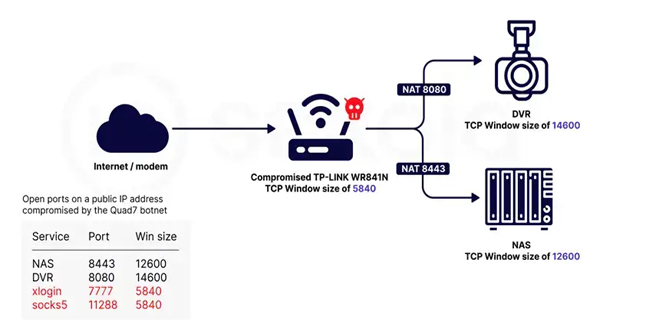Android Smartphone users in front of the big warning signal? A new malware has been discovered, which may pose a major threat to Android users.
India’s Central Computer Emergency Response Team or CERT-In has already issued an alert in this regard. The malware, called ‘DAAM’, is infecting Android smart phones, they said.
By infosecbulletin
/ Saturday , July 27 2024
Malware based threats increased by 30% in the first half of 2024 compared to the same period in 2023, according...
Read More
By infosecbulletin
/ Friday , July 26 2024
A new critical vulnerability in the Domain Name System (DNS) has been found. This vulnerability allows a specialized attack called...
Read More
By infosecbulletin
/ Friday , July 26 2024
A serious vulnerability, CVE-2023-45249 (CVSS 9.8), has been found in Acronis Cyber Infrastructure (ACI), a widely used software-defined infrastructure solution...
Read More
By infosecbulletin
/ Friday , July 26 2024
OpenAI is testing a new search engine "SearchGPT" using generative artificial intelligence to challenge Google's dominance in the online search...
Read More
By infosecbulletin
/ Thursday , July 25 2024
CISA released two advisories about security issues for Industrial Control Systems (ICS) on July 25, 2024. These advisories offer important...
Read More
By infosecbulletin
/ Thursday , July 25 2024
Tenable security researchers found a vulnerability in Google Cloud Platform's Cloud Functions service that could allow an attacker to access...
Read More
By infosecbulletin
/ Thursday , July 25 2024
BDG e-GOV CIRT's Cyber Threat Intelligence Unit has noticed a concerning increase in cyber-attacks against web applications and database servers...
Read More
By infosecbulletin
/ Thursday , July 25 2024
GitLab released a security update today to fix six vulnerabilities in its software. Although none of the flaws are critical,...
Read More
By infosecbulletin
/ Thursday , July 25 2024
Sekoia.io and Intrinsec analyzed the Quad7 (7777) botnet, which uses TCP port 7777 on infected routers to carry out brute-force...
Read More
By infosecbulletin
/ Wednesday , July 24 2024
A threat actor has announced a new DDoS tool called Cliver, which offers strong attack methods for disrupting web services,...
Read More
From user’s call records to contacts, call records, even cameras can be hacked. The most dangerous aspect is that this malware called ‘DAAM’ can bypass anti-viral programs.
DAAM Malware: How is this malware spreading?
CERT-IN mentioned in their report that Android malware is spreading through third party websites and apps. This deadly malware named DAM is bypassing all the security checks that a Smartphone has. This makes it very convenient for a hacker to take control of the device and lead to incidents like banking fraud.
ALSO READ:
ADIB’s New Face Recognition Technology Makes Account Opening Quick and Secure
DAAM Malware: Why is this malware dangerous?
Malware can take control of many of your most private things. Daam can record calls, access phone contacts, access call history, change passwords, take screenshots, download and upload files, steal SMS, take full control of the camera.
DAAM Malware: What to do to survive?
* Do not click on any suspicious links.
* Do not browse untrustworthy websites.
* Do not click on links from unknown, unsolicited emails.
* Be wary of shortened URLs like Bitly.
* Install antivirus and anti-spyware software.
* Verify SMS from bank twice instead of once.
* No information should be shared in online messages or phone calls.
 InfoSecBulletin Cybersecurity for mankind
InfoSecBulletin Cybersecurity for mankind















